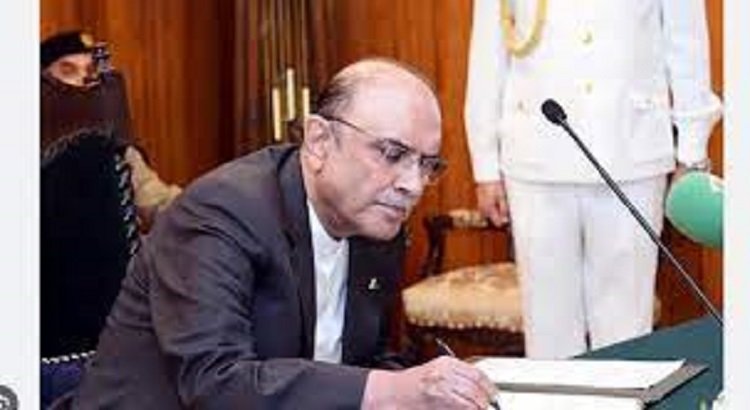Islamabad (TDI): President Asif Ali Zardari gave his assent to the 26th Constitutional Amendment on Monday, making it law after its approval by both houses of Parliament.
The amendment, which introduces significant changes to the judiciary, including curtailing the Supreme Court’s suo motu powers and setting a three-year term for the Chief Justice of Pakistan (CJP), passed with a two-thirds majority in both the Senate and National Assembly.
The amendment also empowers the prime minister to appoint the next CJP from the three most senior Supreme Court judges.
The bill, which initially had 22 clauses, was passed by the Senate on Sunday night.
After incorporating suggestions, the National Assembly approved the version with 27 clauses in a session that extended past 5am on Monday.
Prime Minister Shehbaz Sharif then sent the bill to President Zardari for his assent, officially enacting the ‘Constitution (26th Amendment) Act, 2024’.
Reactions Roll In
The government hailed the passage as a reinforcement of parliamentary sovereignty.
Prime Minister Shehbaz congratulated Parliament on the “historic achievement,” while Interior Minister Mohsin Naqvi and Information Minister Attaullah Tarar praised the role of the ruling coalition.
Punjab Chief Minister Maryam Nawaz emphasized that the amendment would ensure “speedy justice” and open the path to “positive reforms.”
Also Read: 26th Amendment: Ruling Coalition Scores Big
On the other hand, the PTI criticized the lawmakers who voted for the bill, accusing them of betraying the party’s mandate.
PTI MNA Zain Qureshi publicly denied rumors that he supported the amendment, reiterating his loyalty to Imran Khan.
The bill was passed in the Senate with 65 votes, and in the National Assembly, 225 members voted in its favor—just one vote more than the required two-thirds majority.
Also Read: 26th Amendment Ensures Parliamentary Supremacy: PM
The amendment’s passage marks a significant shift in the judicial landscape, with a parliamentary committee now tasked with appointing the country’s top judge, reflecting the government’s efforts to bring about judicial reforms.
Farkhund Yousafzai is an Associate Editor at The Diplomatic Insight.



